The Power of Search Engine Advertising (SEA) in Digital Marketing
In the ever-evolving digital landscape, search engine advertising (SEA) has emerged as a powerful tool for businesses of all sizes to enhance their online visibility, drive targeted traffic, and ultimately, boost their bottom line. As the lines between organic search engine optimization (SEO) and paid advertising continue to blur, understanding the intricacies of SEA has become crucial for any successful digital marketing strategy.
The Fundamentals of SEA
At its core, SEA involves the placement of paid advertisements on search engine results pages (SERPs), ensuring that your business appears prominently when potential customers are actively searching for your products or services. This form of advertising is often referred to as "pay-per-click" (PPC) marketing, as advertisers only pay when a user clicks on their ad.The process of implementing an effective SEA campaign typically involves several key steps:
- Keyword Research: Identifying the most relevant and high-intent keywords for your business is the foundation of a successful SEA strategy. By understanding the search queries your target audience is using, you can create ads that resonate with their needs and interests.
- Ad Creation: Crafting compelling, optimized ad copy and visuals is essential to capturing the attention of users and driving them to your website. Factors such as ad messaging, call-to-action, and landing page experience all play a crucial role in the success of your SEA campaign.
- Bid Management: Determining the optimal bid amount for your keywords is a delicate balance between maximizing visibility and maintaining a profitable return on investment (ROI). SEA platforms like Google Ads and Bing Ads offer advanced bidding strategies to help you achieve your desired outcomes.
- Performance Tracking: Continuous monitoring and analysis of your SEA campaign's performance are crucial for identifying areas of improvement and making data-driven decisions. Metrics such as click-through rate (CTR), conversion rate, and cost-per-acquisition (CPA) provide valuable insights into the effectiveness of your strategy.
The Advantages of SEA
The primary benefits of incorporating SEA into your digital marketing arsenal include:
- Immediate Visibility: Unlike organic SEO, which can take time to build momentum, SEA allows you to achieve immediate visibility on SERPs, ensuring that your business is seen by potential customers at the exact moment they are searching for your products or services.
- Targeted Reach: SEA enables you to precisely target your audience based on factors such as location, device, search intent, and even demographic characteristics. This level of granular targeting helps you reach the most relevant and high-intent users, maximizing the efficiency of your advertising spend.
- Measurable Results: SEA platforms provide robust analytics and reporting capabilities, allowing you to track the performance of your campaigns in real-time. This data-driven approach enables you to continuously optimize your strategy, ensuring a higher return on investment.
- Competitive Advantage: By leveraging SEA, you can gain a competitive edge in your industry by securing prime ad placements and outmaneuvering your rivals in the search results. This can be particularly beneficial in highly competitive markets where organic search rankings may be challenging to achieve.
- Complementary to SEO: While SEA and SEO are often viewed as separate strategies, they can actually work in tandem to enhance your overall digital marketing efforts. By combining the immediate visibility of SEA with the long-term benefits of organic search optimization, you can create a comprehensive and well-rounded approach to driving traffic and conversions.
Mastering SEA for Your Business
To truly harness the power of SEA, it's essential to partner with a team of experienced digital marketing experts who can navigate the complexities of the search engine advertising landscape. At AI SEO Services, we pride ourselves on our ability to leverage the latest AI-powered tools and strategies to deliver unparalleled SEA results for our clients.Our comprehensive approach to SEA includes:
- Thorough keyword research and analysis
- Compelling ad creation and optimization
- Sophisticated bid management and budget allocation
- Continuous performance tracking and campaign refinement
- Integration with other digital marketing channels for a holistic strategy
By working with AI SEO Services, you can unlock the full potential of SEA and position your business for long-term success in the digital arena.
In the fast-paced world of digital marketing, search engine advertising has emerged as a crucial component of any effective strategy. By leveraging the power of SEA, businesses can achieve immediate visibility, targeted reach, and measurable results – all while complementing their organic search optimization efforts.Whether you're a small local business or a large enterprise, the team at AI SEO Services is ready to help you harness the transformative potential of SEA and dominate your online market. Contact us today to learn more about how we can help you drive tangible, long-lasting success through the power of search engine advertising.
What is the difference between SEA and SEO?
- SEA (Search Engine Advertising) refers to the paid advertising placements on search engine results pages (SERPs), where businesses bid on keywords to have their ads displayed. SEO (Search Engine Optimization) is the process of optimizing a website and its content to rank organically in search engine results, without paying for ad placements. While SEA provides immediate visibility, SEO aims to build long-term, sustainable traffic through improved search rankings.
How do I determine the right keywords for my SEA campaign?
- Effective keyword research is the foundation of a successful SEA strategy. Start by identifying the products, services, or information your target audience is searching for. Use keyword research tools like Google Keyword Planner, SEMrush, or Ahrefs to uncover relevant keywords, analyze search volume, and assess competition. Focus on a mix of broad, generic keywords as well as more specific, long-tail keywords that align with your business offerings and user intent.
What are the key metrics to track in a SEA campaign?
- Some of the most important metrics to monitor in a SEA campaign include:
- Click-Through Rate (CTR): The percentage of users who click on your ad after seeing it.
- Conversion Rate: The percentage of users who take a desired action, such as making a purchase or filling out a form, after clicking on your ad.
- Cost-Per-Click (CPC): The amount you pay each time a user clicks on your ad.
- Return on Ad Spend (ROAS): The revenue generated for every dollar spent on your SEA campaign.
Regularly reviewing and optimizing these metrics can help you improve the performance of your SEA campaigns over time.
What are the key metrics to track in a SEA campaign?
- Some of the most important metrics to monitor in a SEA campaign include:
- Click-Through Rate (CTR): The percentage of users who click on your ad after seeing it.
- Conversion Rate: The percentage of users who take a desired action, such as making a purchase or filling out a form, after clicking on your ad.
- Cost-Per-Click (CPC): The amount you pay each time a user clicks on your ad.
- Return on Ad Spend (ROAS): The revenue generated for every dollar spent on your SEA campaign.
Regularly reviewing and optimizing these metrics can help you improve the performance of your SEA campaigns over time.
How can I ensure my SEA landing pages are effective?
Your SEA landing pages play a crucial role in converting ad clicks into desired actions. Ensure your landing pages are visually appealing, mobile-friendly, and provide a seamless user experience. Align the messaging and offers on your landing pages with the ad copy that drew users in. Include clear calls-to-action, reduce friction in the conversion process, and continuously test and optimize your landing pages to improve their performance.
What are the benefits of integrating SEA with other digital marketing channels?
Integrating your SEA efforts with other digital marketing channels, such as SEO, social media, and email marketing, can amplify the effectiveness of your overall marketing strategy. By aligning your messaging and targeting across multiple channels, you can create a cohesive brand experience for your audience and maximize the impact of your marketing investments. This cross-channel approach can lead to increased brand awareness, higher engagement, and improved conversion rates.
Looking for Top Digital service?
Call anytime

